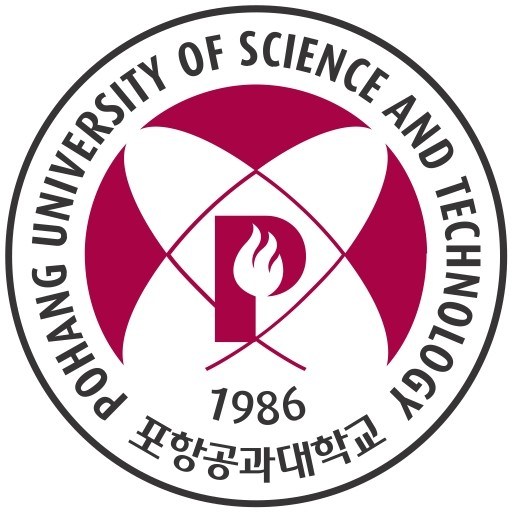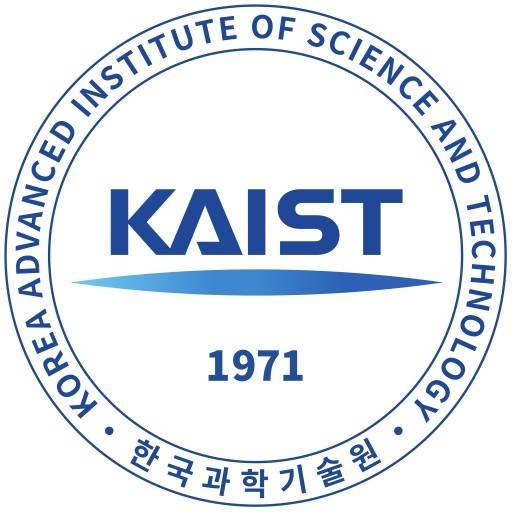Photos of university
ChemEng at POSTECH is a comprehensive undergraduate program designed to prepare students for innovative careers in chemical engineering and related fields. The curriculum provides a strong foundation in core principles such as thermodynamics, fluid mechanics, heat transfer, mass transfer, and process control, combined with advanced topics in materials science, environmental engineering, and sustainable processes. Emphasizing practical skills and experimental techniques, the program incorporates laboratory work, industry internships, and collaborative projects to foster hands-on learning experiences. Faculty members are internationally recognized researchers and educators committed to advancing students' understanding of chemical processes, molecular design, and process optimization. The program aims to cultivate problem-solving abilities, critical thinking, and interdisciplinary collaboration, enabling graduates to tackle complex challenges in energy, manufacturing, pharmaceuticals, and environmental protection. Students are encouraged to engage in innovative research initiatives and to utilize cutting-edge laboratory facilities and simulation tools. With a global perspective and a focus on sustainability, the ChemEng program at POSTECH prepares students to become future leaders in academia, industry, and entrepreneurship, contributing to technological advancement and sustainable development worldwide.
- CHEB 502 Patent Strategy for Researchers
- CHEB 511 Catalysis
- CHEB 522 Molecular Thermodynamics
- CHEB 531 Bioreaction Engineering
- CHEB 541 Statistics for Engineers
- CHEB 551 Engineering Optimization
- CHEB 552 Computer Control Theory
- CHEB 553 Clean Process & Energy System
- CHEB 561 Integrated Circuit Processing
- CHEB 562 Plasma Reaction Engineering
- CHEB 611 Advanced Reaction Engineering
- CHEB 621 Advanced Thermodynamics
- CHEB 631 Advanced Biochemical Engineering
- CHEB 641 Advanced Chemical Engineering Mathematics
- CHEB 642 Advanced Transport Phenomena
- CHEB 643 Advanced Metabolic Engineering
- CHEB 644 Transcriptional Regulation for Synthetic Biotechnology
- CHEB 651 Process Dynamics and Control
- CHEB 652 Process Systems Analysis
- CHEB 661 Advanced Polymer Engineering
- CHEB 699 Master Thesis Research
- CHEB 712 Surface Science in Catalysis
- CHEB 713 Chemical Reactor Analysis and Design
- CHEB 714 Industrial Catalysis
- CHEB 715 Fine Chemical Processes
- CHEB 722 Interfacial Phenomena
- CHEB 731 Biomedical Transport Phenomena
- CHEB 732 Bioseparation Processes
- CHEB 733 Cell Culture Engineering
- CHEB 734 Biochemical Process Engineering
- CHEB 735 Advanced Enzyme Technology
- CHEB 736 Bioreactor Design and Analysis
- CHEB 737 Advanced Molecular Biotechnology
- CHEB 738 Introduction of Marine Environments and Biotechnology
- CHEB 742 Rheology
- CHEB 744 Statistical Fluid Mechanics
- CHEB 745 Numerical Analysis in Chemical Engineering
- CHEB 751 Advanced Process Design
- CHEB 752 Process Synthesis and Analysis
- CHEB 753 Process Modeling and Simulation
- CHEB 754 Advanced Process Control Theory
- CHEB 426 Undergraduate Research Ⅱ
- CHEB 760 Polymer Blends
- CHEB 761 Polymer Synthesis
- CHEB 762 Polymer Processing
- CHEB 764 Physical Properties of Polymers I
- CHEB 765 Physical Properties of Polymers II
- CHEB 766 Advanced Organic Material Chemistry
- CHEB 768 Ceramic Materials Processing
- CHEB 769 Semiconductor Materials Processing
- CHEB 771 Advanced Energy Engineering
- CHEB 775 Waste Water Treatment Engineering
- CHEB 776 Interface and Adhesion for Electronic & Information Materials
- CHEB 786 Process Data Analysis and Modeling
- CHEB 801 A/Z Special Topics in Chemical Engineering
- CHEB 811 A/Z Graduate Seminar
- CHEB 812 A/Z Graduate Research
- CHEB 899 Doctoral Dissertation Research
Requirements
- Applicants must fill out the online application.
- Personal Statement and Research Plan - Download format from the website: http://admission.postech.ac.kr/linkUsen.do?f=sub3-2
- Curriculum Vitae (Free style personal resume)
- Copy of Passport
- Signed Consent Form - Download format from the website: http://admission.postech.ac.kr/linkUsen.do?f=sub3-2
- List of Honors and Awards (optional) - Applicants who have received any honors, awards, or fellowships during their undergraduate or graduate studies may list them in the order of importance.
- Application fee: 80 USD or 80,000 KRW
- Official Transcript(s)
- Degree Certificate(s)
- Recommendation Letters - From two recommenders (academic faculty) - Must be e-mailed or sent by post directly by each recommender, enclosed in a sealed envelope.
- Score Report of English Proficiency Test - The official TOEFL/IELTS Score Report issued by ETS/British Council can be sent to POSTECH Graduate Admissions and Student Affairs directly by requesting it at the ETS/ British Council website. Applicants must enter POSTECH’s institution code (0329) in order for ETS to send the official score report to our office. - TOEFL ITP organized only by POSTECH is accepted
- Degree Theses (option
Scholarships
- Korean Government Scholarship Program (KGSP)
- Global Education
- POSCO Asia Fellowship
- SK hynix Fellowship
- POSTECH Teaching or Research Assistantship
- POSTECH Fellowship for Excellent International Students(PFES)
- POSTECH Settlement Allowance for New International Students
The Chemical Engineering program at Pohang University of Science and Technology (POSTECH) is designed to provide students with a comprehensive education in the fundamental principles and applied aspects of chemical engineering. The program emphasizes a strong foundation in core scientific disciplines such as chemistry, physics, and mathematics, which are essential for innovative research and development in the field. Students are engaged in rigorous coursework that covers topics including thermodynamics, fluid mechanics, transport phenomena, chemical reaction engineering, process control, and separation processes.
Beyond theoretical knowledge, the curriculum incorporates practical training through laboratory experiments, project work, and industry collaborations. This experiential learning approach aims to equip students with essential problem-solving skills, hands-on technical expertise, and the ability to design and optimize chemical processes. The department also encourages interdisciplinary learning, integrating concepts from material science, environmental engineering, and nanotechnology to prepare students for emerging challenges in chemical engineering fields.
Research is a core component of the POSTECH chemical engineering program. Students have access to state-of-the-art laboratories and research facilities, facilitating participation in cutting-edge projects under the supervision of experienced faculty members. The program promotes innovation in areas such as sustainable energy, environmental protection, and advanced materials, aligning with global priorities and industry needs.
Graduate studies are strongly supported, with opportunities to pursue master's and doctoral degrees, fostering a research-driven environment. The program actively encourages international collaboration and exchanges, improving global competitiveness and exposing students to diverse cultural perspectives and scientific approaches. Many graduates of the POSTECH Chemical Engineering program go on to successful careers in academia, industry, and government, contributing to technological advancement and societal development.
In addition to technical training, the program emphasizes leadership development, teamwork, and communication skills. Courses on ethics in engineering, entrepreneurship, and management prepare students to become responsible professionals capable of addressing complex societal issues related to chemical processes and sustainable development.
Overall, the POSTECH Chemical Engineering program aims to cultivate talented engineers and researchers who are equipped to innovate, lead, and make meaningful contributions to science and technology on a global scale. The university's close ties with industry partners and its commitment to research excellence make this program a distinguished choice for students aspiring to excel in the dynamic and impactful field of chemical engineering.


